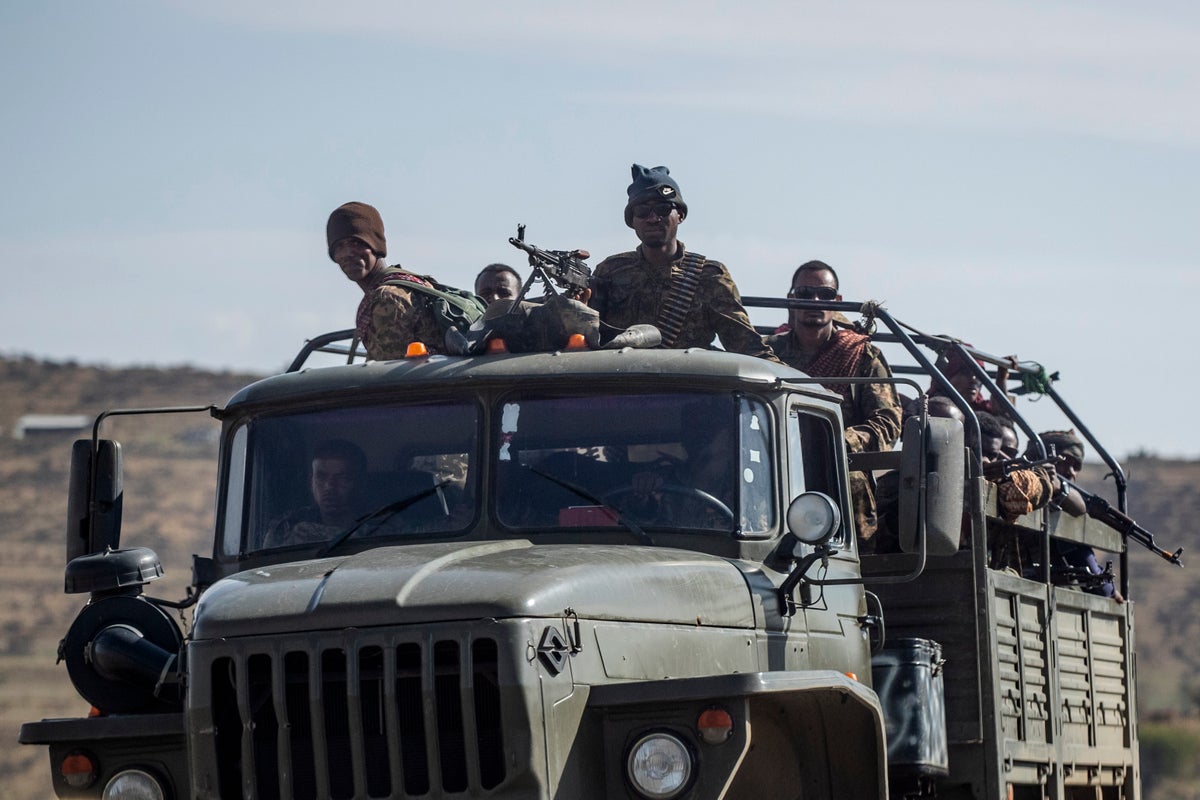
Authorities in Ethiopia’s northern Tigray region alleged Wednesday that Ethiopia’s military launched a “large-scale” offensive for the first time in a year, which would be a significant setback to mediation efforts and humanitarian work to feed millions of people starved of food and other necessities.
The claim by Tigray’s military command after months of military regrouping and a warning this week by Ethiopia’s military against any reporting of troop movements in media and on social media.
The Tigray conflict erupted in November 2020, killing thousands of people, and calmed in recent months amid slow-moving mediation efforts. But last week, the spokeswoman for Prime Minister Abiy Ahmed asserted to journalists that Tigray authorities were “refusing to accept peace talks.”
The Tigray military command's statement Wednesday said: “Ethiopian forces, along with Amhara special forces and Amhara militias, have started a large-scale attack around 5:00 a.m. in the direction of Alamata, southern Tigray.”
Tigray forces spokesman Getachew Reda tweeted that the offensive followed a “week-long provocation” by forces in the neighboring Amhara region.
Ethiopian military spokesman Getnet Adane did not respond to questions. In a tweet, Ethiopia's ambassador to the United Arab Emirates alleged it was the Tigray forces that launched an offensive.
In a Facebook post Tuesday, Ethiopia's army rejected allegations of a military buildup or attacks and claimed the Tigray forces were “engaged in pre-conflict noise.” The post warned against spreading “secrets of the army.”
Ethiopia’s government has said it’s ready for talks but insists the African Union must lead mediation efforts. Tigray authorities have criticized the continental body's efforts and urgently sought the resumption of basic services that have been largely cut off since the war began.
Humanitarian aid began flowing to Tigray in recent months, but a new report by the World Food Program last week said that with little fuel allowed into the region, “this is yet to translate into increased humanitarian assistance.” The U.N. agency's report said the region's “rates of malnutrition have skyrocketed,” with 29% of children malnourished and 2.4 million people severely food insecure.







